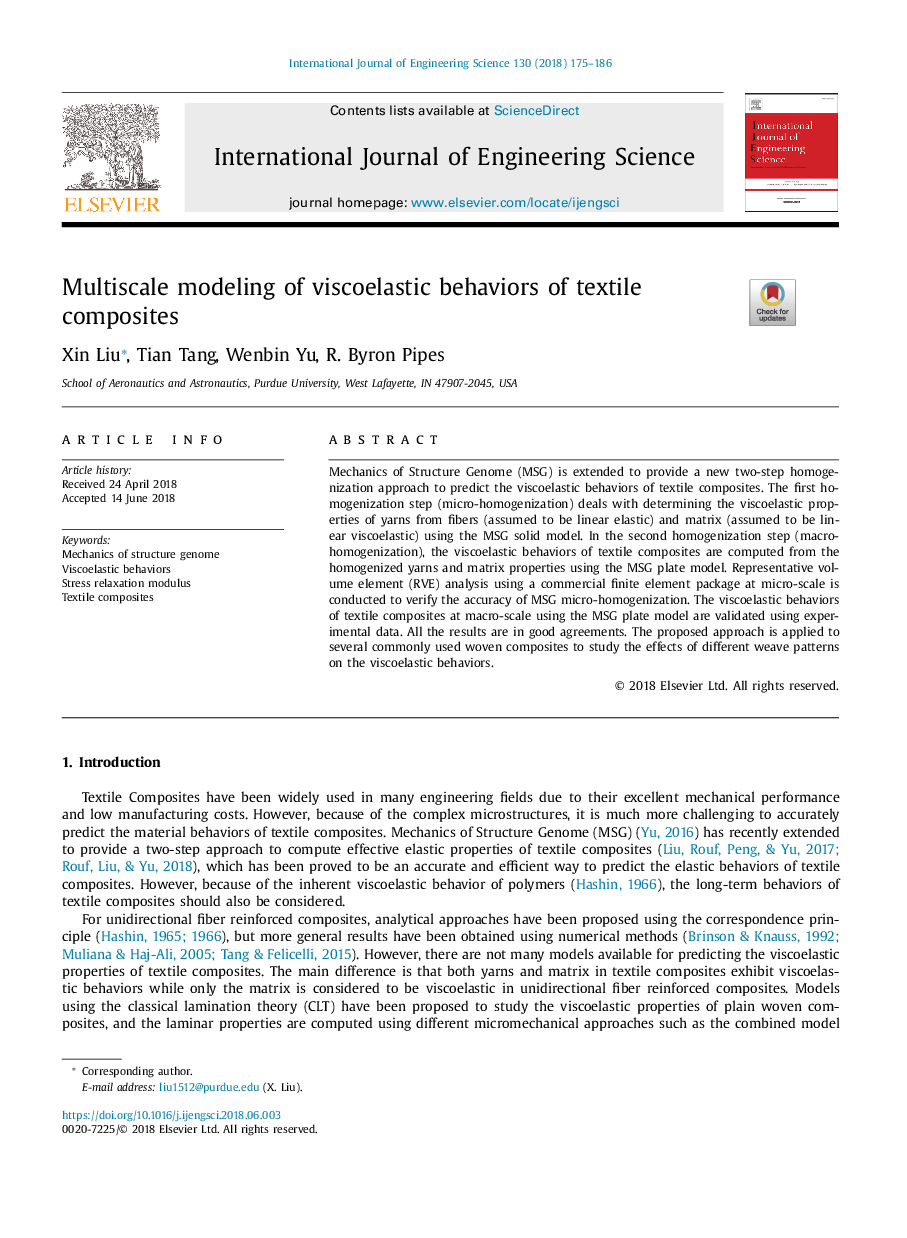| Article ID | Journal | Published Year | Pages | File Type |
|---|---|---|---|---|
| 7216242 | International Journal of Engineering Science | 2018 | 12 Pages |
Abstract
Mechanics of Structure Genome (MSG) is extended to provide a new two-step homogenization approach to predict the viscoelastic behaviors of textile composites. The first homogenization step (micro-homogenization) deals with determining the viscoelastic properties of yarns from fibers (assumed to be linear elastic) and matrix (assumed to be linear viscoelastic) using the MSG solid model. In the second homogenization step (macro-homogenization), the viscoelastic behaviors of textile composites are computed from the homogenized yarns and matrix properties using the MSG plate model. Representative volume element (RVE) analysis using a commercial finite element package at micro-scale is conducted to verify the accuracy of MSG micro-homogenization. The viscoelastic behaviors of textile composites at macro-scale using the MSG plate model are validated using experimental data. All the results are in good agreements. The proposed approach is applied to several commonly used woven composites to study the effects of different weave patterns on the viscoelastic behaviors.
Related Topics
Physical Sciences and Engineering
Engineering
Engineering (General)
Authors
Xin Liu, Tian Tang, Wenbin Yu, R. Byron Pipes,
